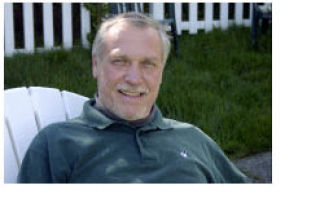FREELAND — A Freeland man flew to Panama for surgery rather than choosing medical treatment closer to home.
Rocky Knickerbocker, a 61-year-old owner of a heating business and a commissioner of the Freeland Water and Sewer District, was desperate for relief from excruciating pain from a hernia.
But worried that surgery would cost too much money locally, he searched the Web for options, finally choosing to have his surgery in Panama City, Panama.
As U.S. healthcare costs soar, more people are opting for medical and dental care in unfamiliar surroundings and thousands of miles from their families and doctors.
Knickerbocker chose Panama for his medical procedure because of the cost savings, and because Panama is a popular tourist destination. It’s a place he and wife Susan have always wanted to visit.
“Medical tourism” has morphed in recent years from an obscure phenomenon into a global industry, fueled by the Internet, ease of travel, shorter wait times for appointments and greater international sharing of medical best practices.
According to the American Association of Retired Persons, roughly a half a million Americans sought medical care abroad in 2006.
Knickerbocker has no regrets and would make that choice again, he said.
However, he said he would choose another country next time, just for the travel experience.
“I would go to Thailand or somewhere else just for a tourist destination,” he said.
His double hernia surgery and subsequent recovery went well, without complications.
The Knickerbockers are self-insured by Christian Brotherhood Insurance and have a $5,000 deductible policy.
However, the hospital accepts all kinds of insurance.
“The best advice is to check with your insurance company,” Susan Knickerbocker said.
The total bill was $6,500 for hospital services, airfare and 12 days in a hotel.
“We saved $10,000,” Rocky Knickerbocker said. “We saved our insurance company a bundle.”
A hip replacement stateside can run between $44,000 and $63,000, versus about $12,000 to $18,000 abroad, even with travel and hotel costs included. Prices vary depending on the destination and the type of surgery, but it isn’t unusual to save as much as 80 percent.
“We chose Panama City partially because it’s not a long flight, like India and Thailand, other popular medical destinations,” he said.
Knickerocker’s surgery was at Punta Pacifica Hospital in Panama City.
“We were so pleased with my treatment at Punta Pacifica Hospital that we would go back again. The doctor, Raymond Bissot who operated on me, called me here before I went down there.
“We were treated like guests once we got there,” he added.
His wife agreed.
“A public relations person met me and took me to lunch and to a VIP lounge during Rocky’s surgery,” she said.
“I would give the hospital a
10 — they were great,” she added.
Rocky Knickerbocker said the hospital was very patient–friendly, and it looked like families were treated well, too.
“They have state-of-the-art medical equipment and everyone spoke English at the hospital,” he said.
The hospital has seven floors and 64 private, in–patient rooms, including 12 suites. There are operating rooms for more than a dozen different surgeries and it is affiliated with Johns Hopkins Hospital of Maryland.
Knickerbocker said he had no worries about his treatment and care.
After the surgery and recovery, hospital staff took Knickerbocker back to his hotel.
“My doctor then visited me at the hotel to check on my recovery. When I needed an extra prescription, the doctor took us around to several pharmacies in his own car. He really went out of his way to be helpful,” Knickerbocker said.
The Knickerbockers stayed in Panama for 12 days following surgery in case of complications.
“That is common practice. They don’t want you to fly too soon and the doctor wanted to see me several times before leaving the country,” he said.
While Knickerbocker’s surgery went off without a hitch, complications can happen anywhere. And medical experts warn there are risks associated with medical treatment overseas. It is important to remember that if something does go wrong in many countries outside of the United States there is very little legal recourse.
Insurance often will not cover the cost of additional treatments and surgeries needed due to an overseas operation, and the legal systems of many of the countries won’t be much help in getting compensation.
Also other countries might not regulate professional licensing and certification as closely as the United States and Europe.
The Knickerbockers used a medical broker to plan the trip.
“The broker booked everything from the hospital to the hotel,” Susan Knickerbocker said.
Knickerbocker was so pleased with his care that he said unless he faces an emergency and he can’t travel, he won’t seek treatment in the United States again.
The tourism part of the trip went well, too, he added.
The Knickerbockers toured the Panama Canal, took a canoe trip, toured a rain forest and visited a native tribe of Indians by boat.
They also ventured into the Panamanian rainforest to stay in Canopy Tower, an eco-lodge that serves as a nature observatory in the 35-acre Soberanía National Park.
“We saw all kinds of birds including eagles, howling monkeys, crocodiles — lot’s of baby crocs always with large crocodiles lurking nearby,” he said.
“The baby crocs are pretty cute,” his wife said. “We were even able to touch the babies while they lay sunning on logs.”
“The rainforest was alive with critters. I think that was my favorite part of the trip. Our room even had its own Gecko lizard,” she added.
They also visited the Embera Indians, who live today much as they did when explorers first discovered Panama in the 1500s on the banks of the Chagres River.
“They picked us up in dugout canoes and we spent the day with them in their village,” he said.
“It was more vacation than a medical trip,” he said.


